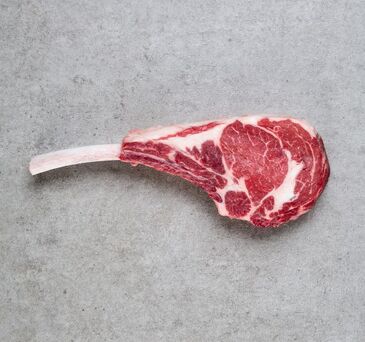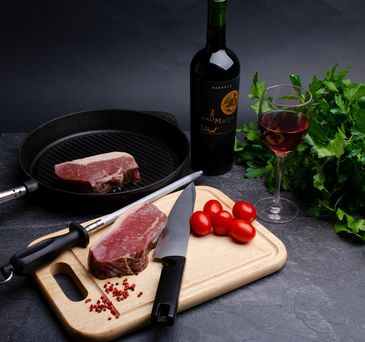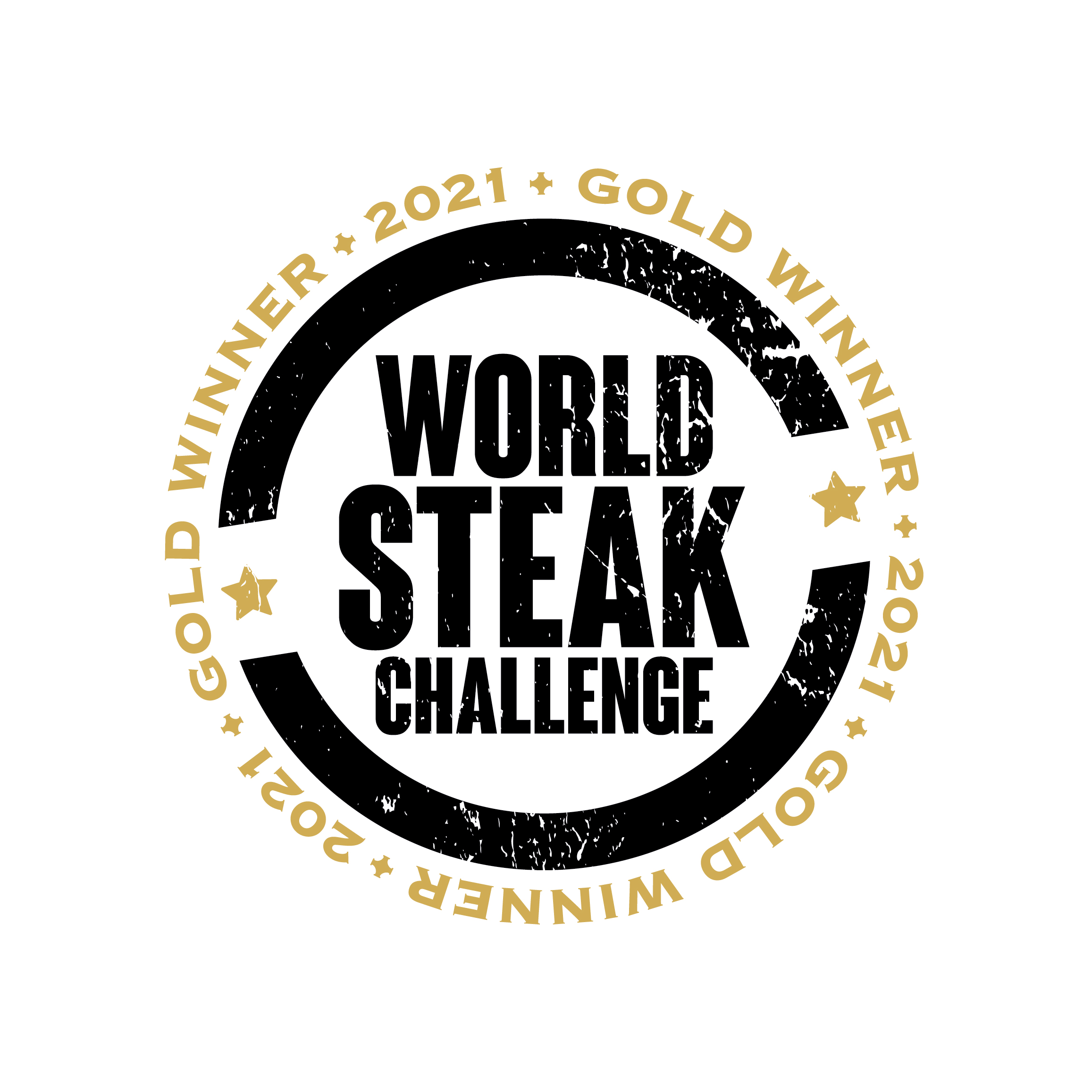The next installment of our native breed cattle series had to be the Belted Galloway. Charmingly nicknamed the Oreo cow for its unusual pattern of black – white – black (although it can also be found in other colour varieties), it’s a familiar breed in the British countryside.
This is one of the breeds that our farmer partners rear in Scotland, and one that we often supply to our domestic and hospitality customers.
The Breed
Native to the UK, this is another breed that is built for the wet and windy climate in Britain. Specifically, it comes from the Galloway hills of Southern Scotland, with its incredibly harsh climate.
The Belted Galloway has evolved to deal with this climate, with a coarse outer layer that keeps it as dry as possible, and an inner layer that protects it from the cold weather. They have great foraging abilities, which means that they can survive where other breeds might not.
It’s an incredibly slow-maturing breed, outliving many other types of cattle. This is also important when it comes to rearing calves, as they are excellent breeders and produce very rich milk.
All of these characteristics have meant that the breed is becoming an increasingly popular one throughout Europe, the Americas, and Australia. We’re extremely lucky to have this breed natively in Scotland, with relatively easy access to its unique and delicious meat.
The Meat
Due to the time taken to mature this breed, and to the characteristics that have made it adaptable to the British weather, the meat from the Belted Galloway is extremely sought after. It has marbling throughout (similar to the Aberdeen Angus), as opposed to a large layer of back fat; which gives it a deliciously tender texture. The reason for this is the double coating, allowing it to stay warm without the layer of fat which is common in other breeds. This also means that the meat itself is leaner, averaging about 2% fat (a low percentage compared to many others!)
The flavour profile of this beef is extraordinary, many of the top chefs in the UK are now using this beef when it's available.
DISCOVER OUR OTHER Articles

Showcasing Scotland 2024
13.03.2024 NewsRead MoreWe were absolutely delighted to attend Showcasing Scotland 2024, an annual event by Scotland Food and Drink

The Tomahawk Steak
10.02.2024 NewsRead MoreIn the world of premium cuts of meat, the tomahawk steak stands out—not just for its impressive size and flavour, but for the experience it offers both the cook and the diner. As butchers, we're...

Pairing Steak and Wine
31.01.2024 NewsRead MoreIf you're like us, you love the pairing of steak and wine. We often get asked about our recommendations for steak cuts and wine pairings, so we thought we would offer up some suggestions. Remember -...



